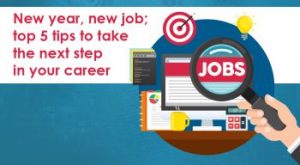When is the best time of year to find a job?
Author: IntaPeople | Date published: 07/10/19


Not all companies hire 12 months of the year, employee annual leave and financial budgets have a big impact on when companies recruit and how long the recruitment process takes. There is a cyclical trend in recruitment, in some months there will be plenty of jobs advertised and periodically throughout the year, particularly in the run up to Christmas, hiring seems to slow down.
When it comes to finding a new job opportunity timing isn’t everything (some companies do hire all year round) but it certainly can be a factor. Being in the right place at the right time is often a reason why some people get hired over others. So, when is the best time of year to find a job? There are so many variables like staff turnover rates, seasonal needs, and business growth plans to consider.
Working with a specialist recruiter can help you understand the recruiting landscape, however, if you want to apply for roles directly one aspect of the job hunt to consider is the recruitment cycle. Like most business functions, recruiting and hiring activity has ebbs and flows, with a bit of research you might be able to time your application just right; to when a hiring manager is most eager to bring in new talent.
What months are hot in the recruitment cycle?
 New year, new job? – January and February
New year, new job? – January and February
January and February seem to be the best time of year to look for a job. Hiring managers have received new hiring budgets for the year ahead and most employees are back in the office after a short break, refuelled by mince pies and festive food.
Just like you might be considering a job change for the new year, unsurprisingly you’re not alone. Many employees also come back into the office after the festive break with new goals and ambitions too. If these cannot be achieved in their current employment these individuals will also start looking for something new, which, in turn creates more opportunities for the wider community.
While you might want to start applying for new roles straight away in January be aware, hiring managers are still trying to re-organise their busy work schedules during the first few days/weeks of the year so it may take longer to hear if you have been invited for an interview.
 Spring into action – March, April and May
Spring into action – March, April and May
March is the end of the financial year and often businesses get new recruiting budgets in April. We commonly see a hiring surge in the spring which is great news for job seekers.
The biggest benefit of applying for a job during May is the sense of urgency – or we like to think so anyway. Many hiring managers are planning their summer vacations, HR tend to spend more time networking and attending local careers fairs and events whilst company directors try and raise funds and plan the release of new products and services during this time. They simply do not have the time to cautiously research every candidate so process and selection maybe a little bit quicker.
 Vacation, Vacation, Vacation – June, July and August
Vacation, Vacation, Vacation – June, July and August
In the summertime, unsurprisingly, more hiring managers and recruiters are on holiday, which means the recruitment process can take longer. It becomes harder to co-ordinate diaries to schedule interviews and candidates often have to wait longer for feedback. Sometimes offers can’t be made until key decision makers are available which understandably can be a frustrating time from a candidate’s perspective.
Most major corporations spend their summer months preparing for seasonal hires, analysing trends and preparing reports quarters ahead. At this time of year, you are more likely to see additional entry-level or graduate opportunities advertised in an effort to secure the fresh intake of budding professionals from university.
If you are job hunting in the summer, be patient. There are opportunities out there, it’s just the process might take a bit longer and not all vacancies are actively advertised. Don’t take silence as a sign your application has been unsuccessful; it is probably that key decision makers are laying on a beach somewhere in the tropics, sipping cocktails and avoiding checking their work emails. If you want to know for sure you can always follow up on your application with a phone call to the point of contact named on the job advert.
 Far more jobs in autumn – September and October
Far more jobs in autumn – September and October
Heading into Harvest and the job market picks back up, you’ve probably spotted a recurring pattern – the hiring season happens in waves! Autumn usually represents the last final push before the new year so use this as one final time to maximise your job-hunting efforts.
As families return from their annual holidays and schools re-open after a long summer break, hiring managers appear to have more availability and time to spend screening potential applications as they face losing the best talent otherwise. During this period everyone seems to be more refreshed and active in the recruitment cycle, whilst also consciously gearing up for December and yet more time off.
 Do you want to build a snowman? November and December
Do you want to build a snowman? November and December
We find that November is the beginning of the next holiday season. Companies are preparing for shut down, Christmas shopping is starting and festive socials begin! Let’s face it, nobody wants to start a new job in December. You’ve worked hard all year round, saved up those holidays and want to take full advantage of the company’s purse strings on the Christmas do – if you’re lucky enough to have one that is.
A large percentage of candidates have a minimum notice period of 4 weeks these days (if not more), which means you need to get organised with your job search during October/November. This will enable you to work your notice period in December and hit the new year ahead with a bang!
If you’re looking for a new position or just want market advice get in touch. Our specialist consultants are experts in their field and are happy to have an informal chat about what you’re looking for. This cycle is typical in the IT and engineering recruitment market, however there are always employers looking for talented individuals, so it’s worth sending your CV across even if it’s the middle of December, you never know what opportunity might be right around the corner.
Quick tips for your job search;
– Keep your CV up to date and present
– Keep your CV available to view on job boards, social media platforms and within recruitment agency CRMS
– Increase your skill sets and add new experience no matter how big or small
– Don’t give up – Some candidates find their next job from one interview, others take several
– Add your up to date CV on our website here
